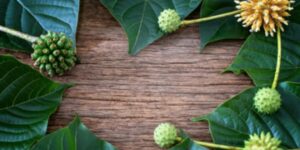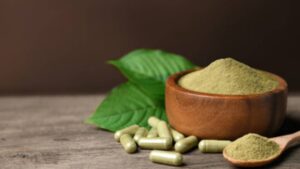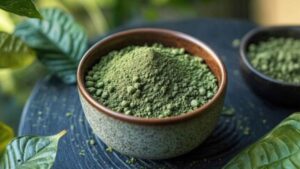With the changes in the social attitude toward the use of marijuana, it is the myth going around that shows that cannabis is not addictive anymore. However, to a large part of individuals, cannabis consumption may expand into severe dependence that has practical effects. When you or a loved one is in trouble, it is important to be able to identify the symptoms and when it is time to get some help with a weed addiction.
This guide covers what it is like to be addicted to weed, signs, where to get help, and what is available- marijuana detox, rehabilitation, and therapy.
Can You Be Addicted to Weed?
Cannabis addiction, also known as cannabis use disorder, is an acknowledged addiction among medical professionals all over the globe. Although not all the people who use marijuana get addicted, some people develop dependence through regular and frequent marijuana use.
Research shows that nearly 9 percent of users will experience a cannabis use disorder, and the risk is increased when a user starts at a young age of adolescence, or when cannabis is used regularly.
Signs and Symptoms of Weed Addiction
Understanding when casual use shifts into addiction depends on recognizing a pattern of problematic behaviors and consequences. Common signs include:
- Using weed more frequently or in larger amounts than intended.
- Unsuccessful attempts to cut back or quit.
- Spending substantial time obtaining, using, or recovering from marijuana.
- Cravings for marijuana.
- Neglecting responsibilities at work, school, or home due to use.
- Continued use despite social, legal, or interpersonal problems.
- Giving up previously enjoyed activities.
- Experiencing withdrawal symptoms when not using, such as irritability, insomnia, loss of appetite, anxiety, or mood swings.
Weed Addiction Help: When and Why to Seek Support
When Should You Seek Help?
- When use is interfering with daily life: work, school, relationships, or finances.
- If cravings or withdrawal disrupt your sense of well-being.
- When repeated efforts to cut down or quit haven’t worked.
- If marijuana has become a central focus or a coping mechanism.
Where Does Support Begin?
Multiple treatment interventions today are available to treat cannabis dependency, and these include outpatient, inpatient, and support groups, all of which are customized according to situations and needs. The initial step can be the recognition of the issue and making efforts to get a professional evaluation.
Weed Rehabilitation: What to Expect
Can You Go to Rehab for Weed?
Yes, absolutely. Drug and alcohol rehabilitation centers offer weed rehab. The addiction professionals have accepted the notion that cannabis dependence is a real condition and should be treated with the same attention that is given to the rest of the substance use issues.
Types of Weed Rehabilitation
1. Inpatient Marijuana Rehab Centers
- 24-hour medical and emotional support in a residential setting.
- Structured routines, group and individual therapy, and holistic wellness activities.
- An environment free from triggers and temptation.
- Most effective for those with a long-term or high-volume dependency, co-occurring mental health conditions, or unsuccessful past attempts at quitting.
2. Outpatient Weed Rehab Centers
- Attend sessions during the day and return home at night.
- Suitable for less severe addictions or strong home support systems.
- Focus on therapy (individual, group, or family) and relapse prevention.
3. Marijuana Detox Centers
- Medical supervision during the beginning of abstinence.
- Support for withdrawal symptoms like irritability, insomnia, and anxiety.
- Smooth transition into therapeutic phases of rehab.
4. Weed Addiction Treatment Centers
- Offer a continuum of care: medical detox, residential or outpatient therapy, relapse prevention, and aftercare planning.
5. Cannabis Rehab Center & Weed Rehabilitation Center
- Often synonymous with the above facilities.
- Integrate evidence-based therapies (like CBT), mindfulness, motivational interviewing, and creative therapies.
What Happens in Weed Rehab?
- Initial Assessment: Evaluation of your marijuana use, physical/mental health, and life circumstances.
- Detoxification: Medical oversight as your body clears THC. This phase ranges from a few days to a week.
- Therapeutic interventions commonly used include Cognitive Behavioral Therapy (CBT), motivational enhancement, group therapy, trauma-informed care, and family counseling. These addresses not just substance use, but underlying causes, triggers, and relationships.
- Support Systems: Peer-led recovery groups such as Marijuana Anonymous (MA), 12-step programs, and SMART Recovery™ provide community and accountability.
- Aftercare Planning: Strategies and resources to maintain recovery and prevent relapse once rehab ends.
Medication for Weed Addiction
Currently, no medications have been FDA-approved specifically for cannabis use disorder. However, research continues into options that may ease withdrawal or reduce cravings.
While medications like bupropion, atomoxetine, venlafaxine, and nabilone have been studied, results are mixed, and these treatments are not widely adopted for weed addiction. Most rehab for weed relies primarily on therapy and behavioral interventions.
What Makes Cannabis Rehab Centers Effective?
- Professional Guidance: Compassionate, non-judgmental staff guide recovery.
- Medical Oversight: Safe withdrawal and monitoring for complications.
- Therapeutic Depth: Address the root causes, not just surface symptoms.
- Community: Structured peer support fosters motivation and reduces isolation.
- Aftercare: Preparation for real-world challenges and sustainable recovery.
Marijuana Detox Center: Do You Need One?
Detoxing from marijuana at a dedicated facility can be especially helpful for:
- Individuals with a long-standing or high-volume dependency.
- Those who have tried to quit multiple times unsuccessfully.
- Anyone with a co-occurring mental or physical health concern.
- Those at risk of severe withdrawal symptoms or relapse.
Is Rehab for Weed Right for You?
If marijuana has become central to your daily life or you struggle to stop despite consequences, rehab may offer the comprehensive assistance required. Many people feel their issue “isn’t serious enough,” but early intervention can prevent escalation. In any case, reaching out doesn’t commit you to inpatient treatment—there are levels of care for every need.
How to Find Weed Rehab Centers
- Search online directories: National helplines (such as SAMHSA) and major addiction treatment organizations often have searchable databases.
- Consult a healthcare professional: Doctors, therapists, or local clinics can provide referrals.
- Check for specialization: Look for centers with experience in weed addiction, not just alcohol or opiates—treatment nuances do differ.
- Assess location and insurance: Consider options that fit your geographic and financial situation.
- Personalized Recovery: Options for Every Situation
- Marijuana Rehab: Focused treatment at a specialized facility, which may include medical detox and extensive therapy resources.
- Cannabis Rehab Center: Sometimes used interchangeably with marijuana rehab, it offers the same range of support.
- Weed Rehabilitation Center: Often emphasizes holistic and creative therapies beyond traditional counseling.
- Outpatient and Community Resources: For milder cases or supportive environments at home, outpatient programs and support groups can offer meaningful guidance.
Final Thoughts
Addiction to weeds exists, and so does the way out. The ability to identify the signs, information about the available treatments, and finding legitimate help for weed addiction can make all the difference.
No matter your source, whether that be a full-time marijuana rehab facility, outpatient treatment, or the community, it begins with an initial step.
More Readings:







